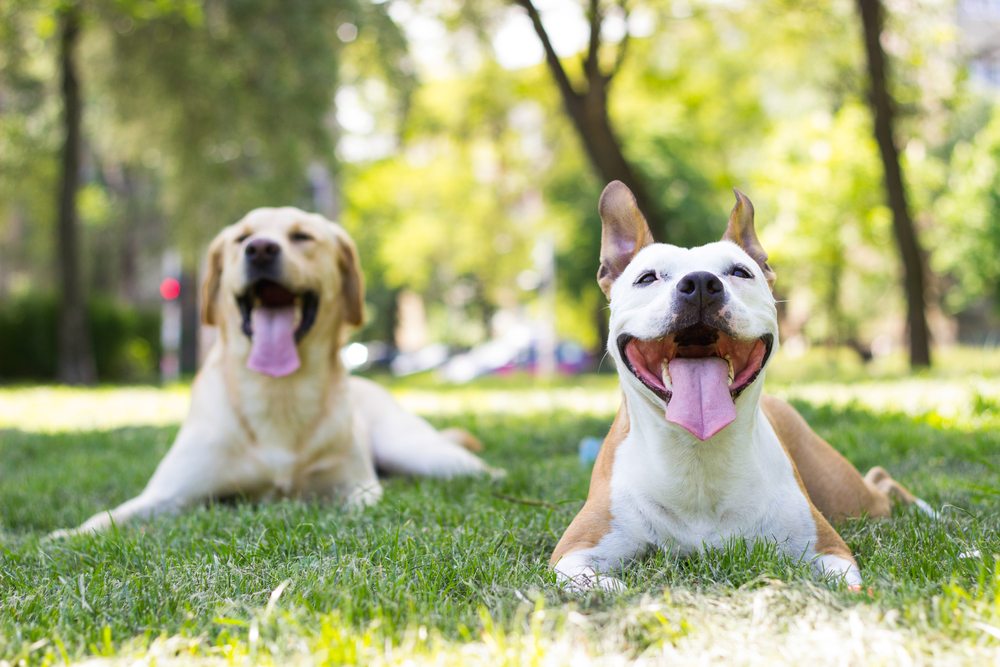Does My Dog Need A Friend?

Everyone needs a friend. After all, it’s good to have a companion who understands you and respects your needs. But does my dog need a friend? The team at Oakland Veterinary Referral Services with our friends at Gigglepets.net is here to help you answer that question.
Dogs belong to the Canidae family, i.e. the family of wolves and foxes. Fortunately, dogs are domesticated and social animals. They enjoy friendly interactions with familiar humans or other animals and tend to avoid isolation.
That being said, every dog is different has its own temperament and preferences. Some dogs prefer to live alone with their owners, while others prefer having another dog friend in the house. How can you decide if your particular dog would enjoy having another dog in the house? It starts with a little observation and research.
Does your dog need a friend? Let’s find out.
Getting a dog friend for your canine can sound like an awesome idea, but it can sometimes lead to aggression and physical injuries if it isn’t a good fit. Surprisingly, despite being the friendliest of animals, dogs don’t always get along with other dogs easily.
Like humans, dogs can be really picky about choosing their roommate or companion. Before you decide to get a new dog, ask yourself a few questions
1. Does my dog like the company of other dogs?
If your dog enjoys human company, it doesn’t mean he will enjoy another dog’s company as well. It has been reported that domestic dogs raised separately and independently do not get along with other dogs like those that have been well-socialized since puppyhood.
Hence, if your dog gets aggressive or anxious in the presence of other dogs, you might reconsider adopting another dog as a companion for him.
2. How does my dog behave when other dogs visit my home?
Sometimes your dog shows no signs of resentment and aggression when interacting with other dogs on a walk or at the park. But, if the same dog were to visit your home and play with your dog’s toy, it might upset him. This would show whether your dog needs a friend or companion.
3. Does your dog seem depressed after a play date?
One thing that can indicate whether your dog might enjoy having a companion is how your dog reacts the day after a play date. If he seems cool and laid back, then he’s probably fine on his own. If he seems a bit off and depressed, you may want to look into getting another dog as he misses that social time with a canine friend.
4. Does gender matter when selecting your dog’s friend?
Gender compatibility matters the most while choosing a new dog for your pup. Watch your dog when he is around other dogs. Does he get along better with males or females?
Your dog may not want another male in the household but would be okay with a female, or vice versa. Most veterinarians suggest choosing the opposite gender whose size is not more than 50 percent different.
5. Does your dog’s personality complement the other dog’s personality?
Matching personalities and temperaments plays a vital role in choosing a new friend for your dog. A dog whose personality matches and compliments the other dog will get along well over one whose personality competes with your dog’s. Imagine living with someone whose personality annoys you.
Does My Dog Need a Friend?
If the answer to all of these questions points in favor of a new companion, get your canine a new friend, and he’ll love it. If the signs are against it, take it seriously and don’t dishearten your dog by getting him an unwanted friend.
Tips and Tricks to Developing Friendly Canine Relations
A. Keep The Dogs Isolated for a Few Weeks:
No matter how friendly the dogs may seem, you need to keep them separated for a few weeks to help them understand their boundaries. Early habits last the longest and dogs need some time alone with their belongings just like humans. In order to do this, feed them in different corners of the room with different colored food bowls. And keep their dog beds and mats separated. Give them different toys to play with. And once they know they each have their own space and time, they won’t feel as threatened by each other.
B. Be their Pack Leader
Dogs are pack animals and they live in hierarchical packs. If a dog is alone and the only pet, it won’t lead to many problems. If there are two dogs, one will likely try to establish dominance over the other and things can get out of hand. So, as head of the pack, maintain your position as their pack leader and both canines will follow you.
C. Supervise the Dogs
Don’t leave the dogs home alone on their own at first. Supervise their actions and body posture to avoid any fights.
D. Maintain Equality
Your current dog will have to adjust to not being the only dog. Don’t make it more difficult by paying more attention to the new dog. Always maintain equality in your interactions with the dogs so one or the other doesn’t feel left out.
E. Patience is the Key
Even if the situation is a little rough, the dogs will eventually learn to accept each other’s presence. They may adjust quickly or take months to get along due to the difference in personalities.
Let the dogs take time to get to know each other well. In the meantime, take them on long walks and introduce them to new activities together to build a friendly relationship. Or, if personalities truly clash, give each space from the other.
All in all, be consistent and let each dog know that you love them equally.
This blog is contributed by Pet Name Generator from GigglePets.net.


